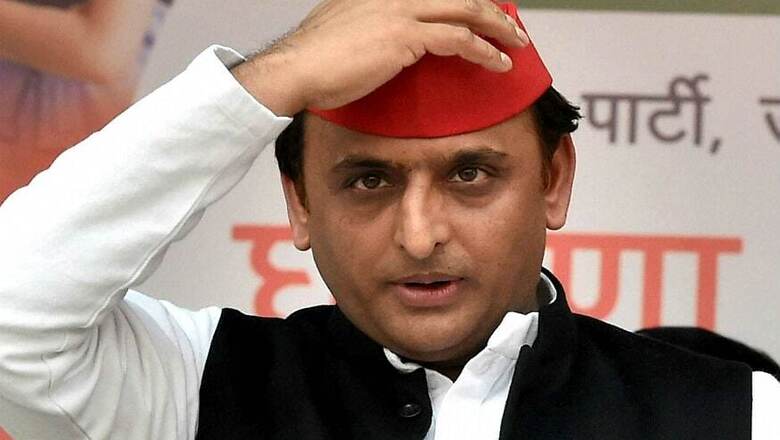
views
New Delhi: It was a stunning revelation by Uttar Pradesh government’s Principal Secretary (Geology) Sudhir Kumar: that illegal mining exists in the state, thrives even, and that “persons…without any authority, lift the material…whenever they feel comfortable to do so.”
Two-and-a-half years before Akhilesh Yadav would accuse the BJP of vendetta politics over CBI investigation into the mining scam, the counsel for his government had made a similar argument. That bringing in the central government’s investigative agency would be premature, since the state was taking action.
An Attempt to ‘Obfuscate’ 149 Illegal Mining Leases
The court wasn’t convinced and a series of disclosures made by Kumar would shock the “conscience of the court”.
On May 31, 2012, the Akhilesh Yadav government directed that mining leases be settled through e-tendering, effectively making the renewal or extension of previous leases illegal – this was upheld by the Allahabad High Court and the Supreme Court. However, the state government not only granted, but also renewed the mining leases, based on applications that were “pending” before the May 31 directive.
Kumar submitted a total of 149 mining leases in 24 districts and 82 approvals for execution of lease deeds after the court’s orders. Of these 149 leases granted, 67 were executed “after the promulgation of its own government order…directing implementation of directions issued by this court.”
To put the scale of the illegal mining in perspective, a thousand trucks continued to transport illegally mined sand and minor minerals to the rest of the state till April 2016, the plea alleged.
What the May 31 order had done, the court noted, was to usher in a “completely new regimen for the disposal of applications for grant of mining leases by way of e-tendering”. A “paradigm shift” in the scheme with the impact of “rejecting all applications for grant, renewal or extension”, the court said.
“The Court in no uncertain terms held that no applicant could claim a vested right to have his application considered or disposed of in accordance with a procedure which held and governed the field prior to 31 May 2012. It was held that on and after 31 May 2012 grant of mining leases would have to be made by way of e-tendering and in accordance with the provisions of Chapter IV of the 1963 Rules,” the court said.
What followed after, the court noted was a “separate issue” and also described as an attempt “at obfuscation” or a “clear overreach”. It was this that made the court believe that the “action of the State comes under cloud and the motives become oblique”.
While the court had said that all pending applications remain rejected, the state government issued a second order on February 26, 2013 stating the exact opposite — that wherever approval was given prior to September 2012, applications would “be treated as valid” and “would for the purposes of renewal be treated as valid”.
Why Was CBI Asked to Probe?
Raju Ramachandran, senior counsel for the state of UP, had argued that the CBI investigation was “prejudicial to the interest of the state…contrary to the judgments of the Supreme Court” and that the CBI couldn’t be asked to “investigate within the territory of a State without the consent of that State”.
But the court noted, that in spite of various directions the state had issued, this remained “dead letter… followed only in breach”. What sealed the deal, as far the UP government’s argument was concerned, were the series of inconsistencies that were presented before the court.
For instance, the court was informed on the one hand that illegal mining had stopped — zilla panchayats continued issuing receipts that “established the continued transportation of minerals throughout the state” and the state’s own inspection reports showed that “mining operations were continuing on a large scale”.
In majority of the cases, the question of whether the “illegally mined mineral was confiscated” remained unclear, leading the court to conclude that there existed a “larger design to pay only lip service to the (courts) and at least prima facie establish a complicity of officers at the highest echelons of the State Government.”
In conclusion, the court said, “We are of the view that an inquiry can’t be entrusted to a committee comprising of officials of the state government”, adding that the “complicity and connivance of its own officials across levels is prima facie evident, no independent or impartial enquiry can possibly be entrusted to it.”




















Comments
0 comment